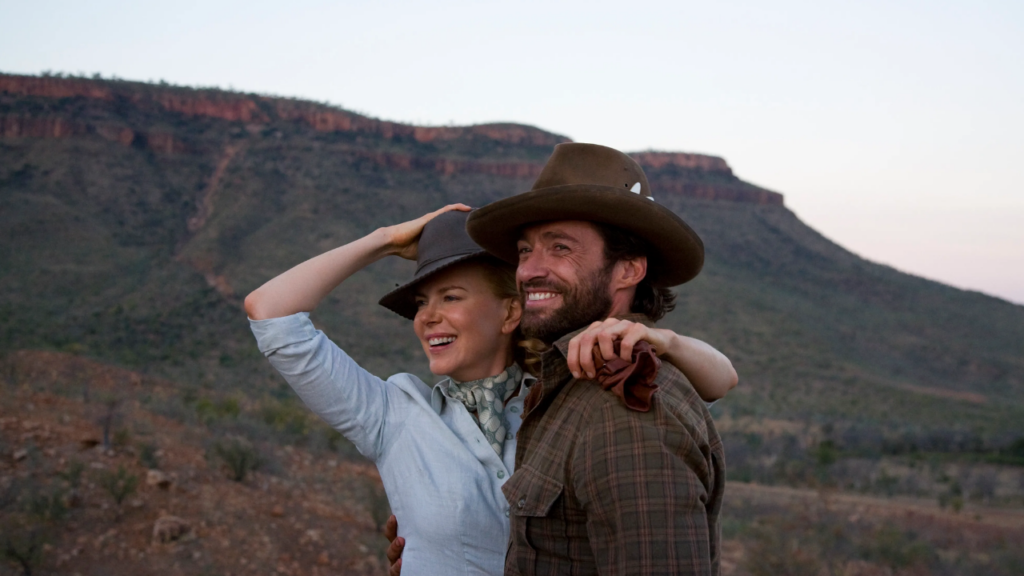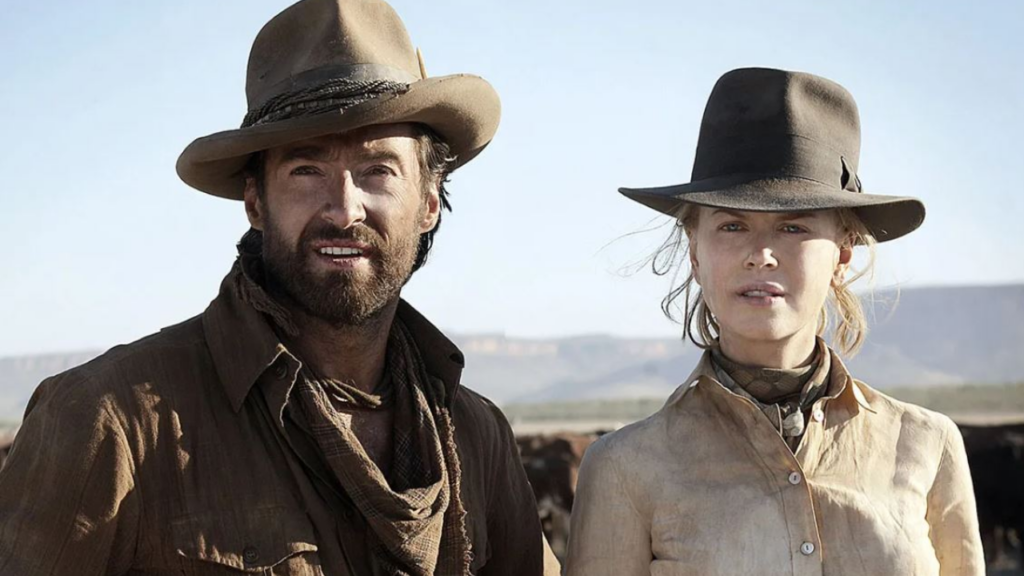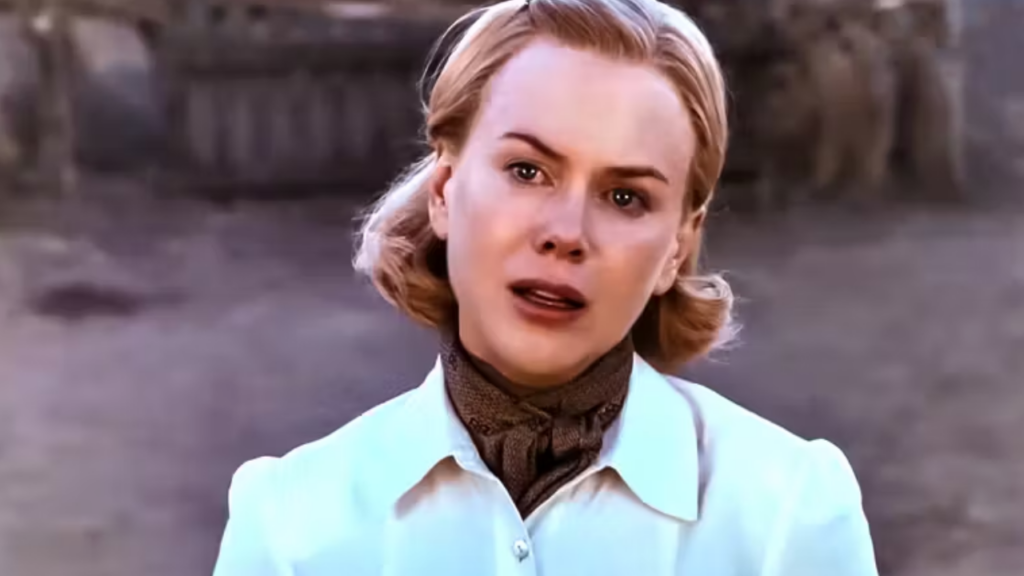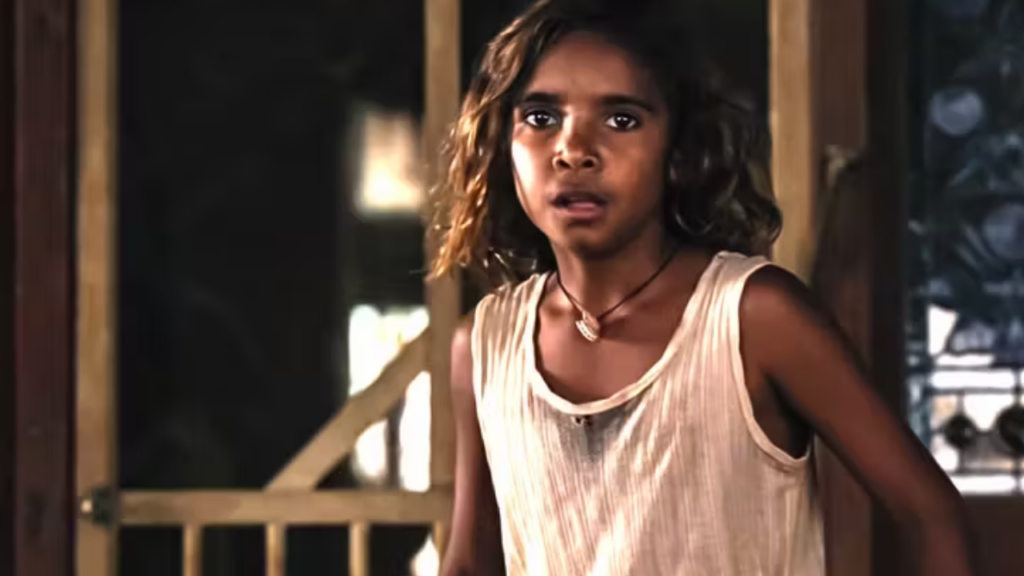The conclusion of the film Faraway Downs marks a pivotal moment where the characters grapple with the complexities of cultural heritage and historical oppression. As the narrative unfolds, we witness the transformation of Lady Sarah Ashley, the plight of the indigenous communities, and the broader societal implications of colonialism in Australia.
The film’s ending serves as an exploration of the characters’ journeys and the broader themes of reconciliation and empowerment. The departure of certain characters symbolizes their acknowledgment of the importance of cultural heritage and the need to confront the injustices inflicted upon indigenous communities throughout history.
Faraway Downs Ending Explained
The film’s ending will provide a lens through which we can see the broader historical context of the Stolen Generation and the government’s official apology in 2008. Let us have a look at the film’s conclusion, so we can gain a deeper understanding of the complexities of cultural identity and the ongoing journey towards reconciliation in Australia.
1. Sarah’s Arrival In Australia
Upon her arrival in Australia, Lady Sarah Ashley (Nicole Kidman) found herself in a land she had only heard about from her husband, Maitland Ashley (Hugh Jackman). As she ventured into the remote cattle station of Faraway Downs, she realized the importance of grasping the intricate local and national politics to navigate the motives driving the people.
With King Carney’s dominance in the beef industry, Lord Ashley’s farm stood as a rare exception outside his control. Despite Carney’s persistent interest in the property, Maitland’s refusal to sell it reflected his distinct vision for the land. To aid her journey, Lord Ashley directed Sarah to seek guidance from a man named Drover for the trip from Darwin to Faraway Downs.
Related- The Tailor Season 3 Ending Explained- Twisted Revelations And Heartbreaks
2. Unveiling Fletcher’s Deception
Fletcher orchestrated a scheme to falsely implicate King George in Lord Ashley’s murder, exploiting prevailing prejudices against the Aborigines. His actions epitomized the deceit underlying the colonial narrative, built on land seizure and cultural oppression. While indigenous communities sought harmony with nature, the colonial powers, exemplified by proud British men like Fletcher, engaged in ruthless exploitation.
Motivated by greed and entitlement, Fletcher aimed to claim Faraway Downs for himself, resorting to theft and manipulation. Evidence, including stolen cattle and the murder weapon, pointed to Fletcher’s guilt, prompting Sarah and Drover to suspect his involvement. Fletcher’s ambitions and treachery laid bare the true nature of the colonial enterprise, built on criminality rather than superiority.
Related- It Snows In Benidorm Ending Explained: A Quiet Ode To Self-Discovery
3. Sarah’s Transformation At Faraway Downs
Upon arriving at Faraway Downs, Sarah discovers the tragic fate of her husband at the hands of an Aboriginal man named King George. Neil Fletcher, the farm’s manager, urged her to leave due to financial losses and the looming threat of the murderer. However, Drover, motivated by a promised reward, convinced Sarah to stay for a day.
Meanwhile, a young Aboriginal boy named Nullah, fearful of Fletcher, attempted to warn Sarah about his dishonesty. Despite lacking concrete evidence, Nullah’s words and actions revealed Fletcher’s deceit. When Fletcher’s lies were exposed, Sarah asserted her authority, earning the respect of the people and assuming the role of Missus’s boss, embracing her newfound responsibility for the land and its inhabitants.
Related- Attack on Titan Manga Ending Explained: Breaking Down the Final Chapters!
4. Nullah’s Embracing Of Cultural Tradition
Initially, Sarah wished for Nullah (Brandon Walters) to remain with her, fearing for his safety during the Aboriginal Walkabout. However, she came to understand that denying Nullah his cultural tradition was unjust, recognizing the importance of Aboriginal Walkabout in his transition to adulthood. As Nullah departed with his grandfather, it became evident that every community had the right to preserve its culture without external imposition.
The historical oppression and suffering endured by the Aborigines, particularly the Stolen Generation, underscored the violation of their human rights. While the government’s official apology in 2008 marked a political milestone, it couldn’t fully redress the profound injustices inflicted upon the indigenous community.
Related- Haunting Of The Queen Mary Ending Explained- Revealing The Haunting Conclusion!
Summary
At the heart of the ending is the departure of Nullah, a young Aboriginal boy, as he chooses to embark on the traditional Aboriginal Walkabout with his grandfather. This decision prompts a profound realization for Lady Sarah Ashley, who comes to understand the significance of respecting and preserving indigenous cultural traditions. For more captivating content follow, Scpsassam.org.



